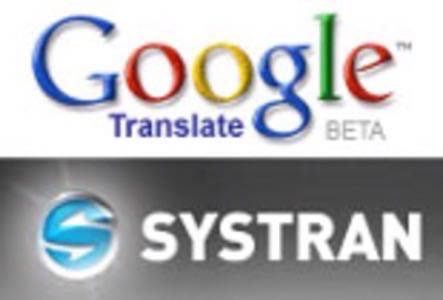Google Operating System is reporting that Google has switched to its own in house translation system for all 25 available language pairs. Previously, the site used Systran for almost all of its translation processing, turning to its in house software only for Arabic, Chinese, and Russian. AltaVista’s Babelfish, one of the first and most well-known online translation services, still uses Systran for language processing.

I thought I would put the two head-to-head to see which produced better results. Unfortunately, my high school Spanish has grown a bit rusty, and English is the only language in which I am proficient (if you can call this proficient). So translating from English to another language would do me no good. For this test, I visited Project Gutenberg and downloaded two versions of “Pierre et Jean” by Guy de Maupassant, one of my favorite writers, one in the original French and the other an English translation. I then fed the same passage, in French, through both translators.
Here are the original passages:
Original French: D?®s qu’il fut dehors, Pierre se dirigea vers la rue de Paris, la principale rue du Havre, ?©clair?©e, anim?©e, bruyante. L’air un peu frais des bords de mer lui caressait la figure, et il marchait lentement, la canne sous le bras, les mains derri?®re le dos. Il se sentait mal ? l’aise, alourdi, m?©content comme lorsqu’on a re?ßu quelque f?¢cheuse nouvelle. Aucune pens?©e pr?©cise ne l’affligeait et il n’aurait su dire tout d’abord d’o?? lui venait cette pesanteur de l’?¢me et cet engourdissement du corps. Il avait mal quelque part, sans savoir o??; il portait en lui un petit point douloureux, une de ces presque insensibles meurtrissures dont on ne trouve pas la place, mais qui g?nent, fatiguent, attristent, irritent, une souffrance inconnue et l?©g?®re, quelque chose comme une graine de chagrin.
English (human translation): As soon as he got out, Pierre made his way to the Rue de Paris, the high-street of Havre, brightly lighted up, lively and noisy. The rather sharp air of the seacoast kissed his face, and he walked slowly, his stick under his arm and his hands behind his back. He was ill at ease, oppressed, out of heart, as one is after hearing unpleasant tidings. He was not distressed by any definite thought, and he would have been puzzled to account, on the spur of the moment, for this dejection of spirit and heaviness of limb. He was hurt somewhere, without knowing where; somewhere within him there was a pin-point of pain — one of those almost imperceptible wounds which we cannot lay a finger on, but which incommode us, tire us, depress us, irritate us — a slight and occult pang, as it were a small seed of distress.
And here are the translated versions (from French):
AltaVista Babelfish: As soon as it was outside, Pierre moved towards the street of Paris, the principal street of Le Havre, lit, animated, noisy. The a little fresh air of the edges of sea cherished the figure to him, and it went slowly, the cane under the arm, the hands behind the back. It was smelled badly at ease, weighed down, dissatisfied like when one received some annoying news. No thought specifies did not afflict it and it would not have known to say first of all from where this gravity came to him from the heart and this numbness from the body. It had some share badly, without knowing where; it carried in him a small painful point, one of these almost insensitive bruises which one does not find the place, but which obstructs, tire, sadden, irritate, an unknown and light suffering, something like a seed of sorrow.
Google Translate: When he was outside, Pierre went to the streets of Paris, the main street of Le Havre, lighted, busy, busy. The air of a little fresh seashores figure caressed him, and he walked slowly, cane under his arm, hands behind their backs. He felt uncomfortable weight, as unhappy when received some disturbing news. No precise thought it sad and knew he would say first of all that this was due gravity of the soul and the numbness of the body. He had badly somewhere without knowing where; He wore it a little painful point, one of these almost insensitive bruises which are not found instead, but the way, tired, sadden, irritate, suffering and unknown slight, some something like a seed of sorrow.
I think we can be confident in saying that machine translation still can’t compete with human. Both Google and AltaVista get a lot wrong and have some strange output (“It was smelled badly at ease?”), and each get some things surprisingly close. Neither, though, would be suitable for more than trying to gain a quick, cursory understanding of something written in an unfamiliar language. Real translation is still best left to the people who are fluent in the languages in question.
What do you think of our test, though? Which site do you feel came up with the best translation? Will you use one over the other?

















